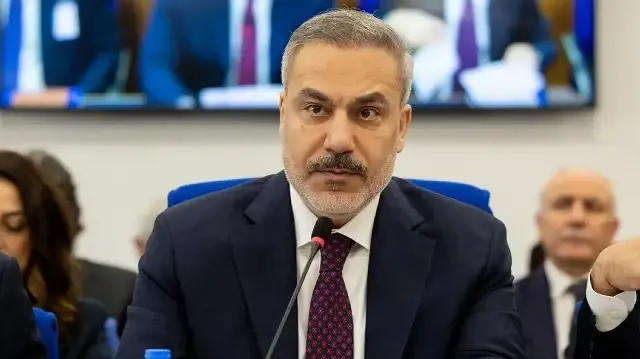Türkiye links Armenia normalization to Baku-Yerevan peace deal

Foreign Minister Hakan Fidan has reaffirmed that Türkiye will normalize relations with Armenia only after a comprehensive peace agreement is signed between Azerbaijan and Armenia. Speaking in parliament, Fidan stated that this sequenced approach is necessary to prevent a frozen conflict in the South Caucasus. He also addressed EU-Türkiye relations, criticizing what he described as discriminatory European visa policies linked to identity politics.
Türkiye has reiterated that the full normalization of its relations with Armenia is contingent upon Yerevan first concluding a definitive peace agreement with Azerbaijan. Foreign Minister Hakan Fidan outlined this position during a parliamentary session in Ankara, emphasizing a strategic foreign policy stance aimed at ensuring lasting stability in the South Caucasus region.
A deliberate sequencing for peace
Fidan explained the logic behind linking the two processes, stating that a premature normalization between Ankara and Yerevan could remove a key incentive for Armenia to finalize a deal with Baku. "We do not want a frozen conflict in the region," he told lawmakers during the 2026 budget discussions. He identified the Zangezur Corridor and specific constitutional matters in Armenia as the remaining hurdles in the Azerbaijan-Armenia negotiations, confirming that Türkiye's border gates would open once these issues are resolved.
Critique of EU visa policies
Shifting focus to Europe, the foreign minister offered a sharp analysis of the European Union's visa restrictions. Fidan suggested that the EU's internal political dynamics, particularly the rise of far-right parties, have led to veiled measures targeting migration from Muslim-majority nations. "They can't openly say, 'I don't want Muslims,'" Fidan stated, arguing that these unspoken policies are hindering visa liberalization with Türkiye. He asserted that Europe is aware that visa-free travel is the logical next step given the deep social and economic ties but is hesitating due to "identity policy."
The path forward with Europe
Despite the criticism, Fidan indicated that Türkiye is actively engaging with European counterparts to address these underlying issues. He pointed to the extensive cooperation and people-to-people contacts between Türkiye and EU nations, framing visa liberalization as an essential component for future relations. However, he expressed skepticism about the EU's willingness to admit a Muslim-majority country, citing France's opposition and Germany's silence on the matter as evidence of a deeper reluctance.
Reklam yükleniyor...
Reklam yükleniyor...







Comments you share on our site are a valuable resource for other users. Please be respectful of different opinions and other users. Avoid using rude, aggressive, derogatory, or discriminatory language.